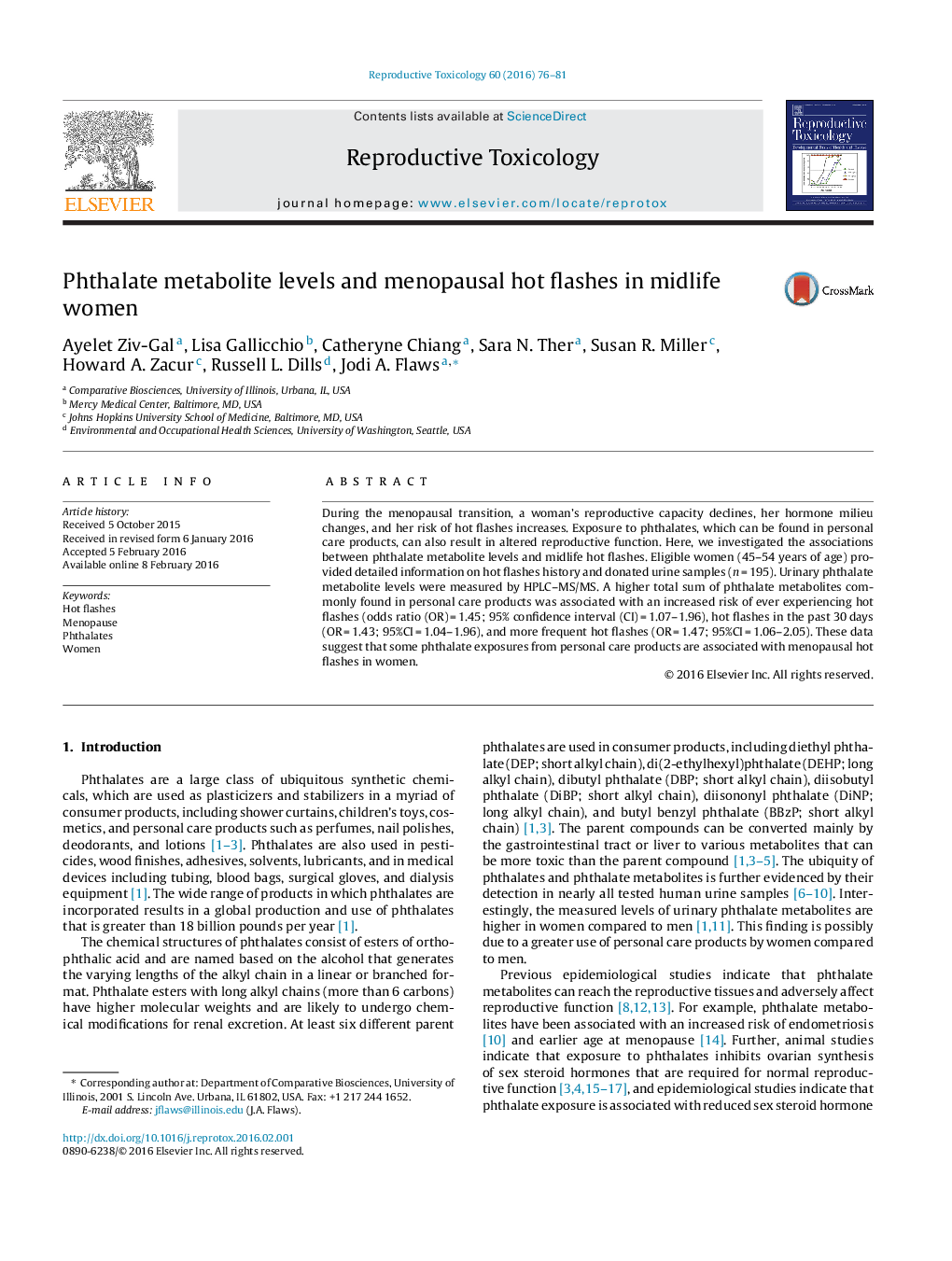| Article ID | Journal | Published Year | Pages | File Type |
|---|---|---|---|---|
| 2593325 | Reproductive Toxicology | 2016 | 6 Pages |
•A higher sum of phthalate metabolites in personal care products (sum PCP) was associated with an increased risk of ever experiencing hot flashes.•Sum PCP was significantly and positively associated with hot flashes in the past 30 days.•Sum PCP was significantly and positively associated with daily hot flashes.
During the menopausal transition, a woman’s reproductive capacity declines, her hormone milieu changes, and her risk of hot flashes increases. Exposure to phthalates, which can be found in personal care products, can also result in altered reproductive function. Here, we investigated the associations between phthalate metabolite levels and midlife hot flashes. Eligible women (45–54 years of age) provided detailed information on hot flashes history and donated urine samples (n = 195). Urinary phthalate metabolite levels were measured by HPLC–MS/MS. A higher total sum of phthalate metabolites commonly found in personal care products was associated with an increased risk of ever experiencing hot flashes (odds ratio (OR) = 1.45; 95% confidence interval (CI) = 1.07–1.96), hot flashes in the past 30 days (OR = 1.43; 95%CI = 1.04–1.96), and more frequent hot flashes (OR = 1.47; 95%CI = 1.06–2.05). These data suggest that some phthalate exposures from personal care products are associated with menopausal hot flashes in women.
